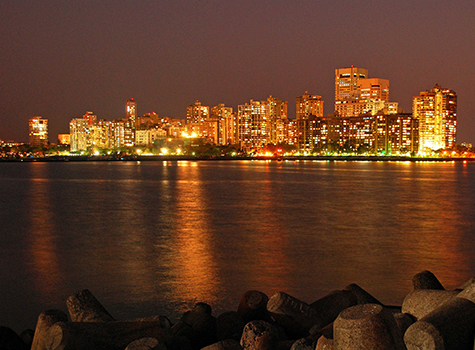
I have never met anybody who got up and was bouncing off the wall to get to work.
I mean, my dad had a great job, but he was hardly whistling while shaving for work at 6am. Very rarely, when we had a day off from school, my brother and I would accompany him to the office. This was a luxurious VIP experience, from the driver carrying his briefcase to a person opening his door at the high rise building at the government complex.
This was a massive, fun place for us, with a secretary in a large room outside the 5th floor office. A messenger could be summoned and would run in and collect envelopes with a fancy wax seal on them to deliver across the building or across the campus of many white buildings that made up what was then called the Secretariat in Islamabad, Pakistan.
My dad’s office was enormous. Thinking back, it was probably half the size of the bottom floor of my house. The living room area of it had a large couch and four large chairs. My dad would sometimes hang his coat in a closet and lie down on the couch, while the cafeteria brought us kids soft drinks and snacks. We drew pictures on fancy government notepads and were fascinated by things like staplers and paper clip dispensers and those rocking pads used to dry my dad’s very prominent (and unreadable) signature on multiple documents. He would pace around the large space talking while one of the secretaries took dictation in shorthand – which I looked at from behind her seat as fascinating hieroglyphics.
The reason I mention this memory dating back to the early 1970s is that if you had ever asked me about my favorite job, I would have said I wanted to be like my dad and do the big stuff of government. I couldn’t imagine anybody on earth not wanting or liking a job like that. But I also mention that because debt and the needs of the lifestyle and maybe some forward thinking on the future of his children, he left it all behind to sit in a cubicle the size of a bathroom at the UN. In the late 1980s, when I was visiting from America, he looked up while reading his Newsweek magazine in bed and said: “I am tired.” He was just 58 then.
The pandemic employment story is complex and multi-tiered. I have now met people who invested in the right stocks during the pandemic and probably don’t need to work for a good while. Having worked white collar and blue collar in America over the decades, I know people who made a new model out of our dependence on video calls; and I know people who were earning the best money of their lives due to all the stimulus checks and boosters being thrown at them.
The “Help Needed” sign now welcomes me even above the “Masks Required” sign in a lot of places when I approach the door. I know friends and family who, as of this writing, are coming to the end of the large benefits that this rich country offered to keep the economy afloat during this pandemic. I know of no one who redefined themselves in this economy. I know of plenty of people who redefined their definition of “employment.” That’s the key.
There has been much debate lately about there being more jobs open than willing employees available. The media is constantly reporting on established businesses shutting down because they are down to four employees instead of the 15 they needed to operate. Maybe that’s an adjustment this economy will now make. Lots of employers are raising wages that have been static since the 1980s, while the bosses made untold millions on the backs of working families. The Biden Administration is starting to openly attack billionaires who pay zero taxes for the unimaginable lifestyles they lead.
But where are we as far as our own aspirations for the future? White collar or blue, a lot of us got used to sitting in our pajamas at home on incentives designed to save, well, I don’t know, the Fortune 500 companies? The billionaires all did pretty well in this pandemic. Lots of the working class also made the best money of their lives and got to sit at home because the companies got pandemic loans but went belly up anyway.
Which brings us to today. I have talked to a ton of people who are making the same sort of statement to me: “I ain’t going back to that hell.” Several people have such high expectations plugged into the various unemployment programs that their chances of ever finding a job is about zero. Late at night, I sometimes wonder if something broke in us during the pandemic. Driving an hour one way daily, dealing with an incompetent boss pushing you to continually produce more is not worth it anymore. Did we get lazy – or did we wake up?
I think the US economy, and maybe even the global economy, will morph into something totally different now. If I had that crystal ball, I would be a billionaire as well. But wages have always been a bad indicator of job satisfaction. We are suffering from a complex set of rethinking the world we are in. We have gone through mental trauma, but also through this once in a lifetime era of having massive amounts of time to analyze the beings we are. Some of us made enough money through this crisis, but others simply got cynical and redefined their lifestyles to live on a lot less. You know, live on even less than the profit-hungry CEOs told us was a living wage at 20 hours a week.
Now they want to pay us more. Now they want us back making burgers. Now, we don’t want to. We don’t know the future, but for now, we want to think it over. “I am tired,” my dad said. He retired at 58. What were his priorities? What are ours?
———-
Ahsen Jillani a former editor and publisher, is originally from Islamabad, Pakistan, and now lives in Mint Hill. He owns Must Media, a PR company focusing on both political and corporate clients.
Posted: Monday, October 4, 2021



